Food

Art During the Holocaust
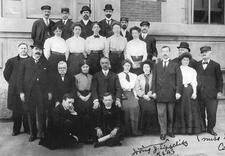
Assimilation in the United States: Nineteenth Century
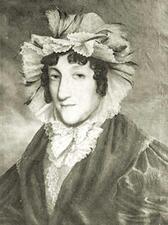
Australia: 1788 to the Present
The first Jewish women, like the first Jewish men, arrived in Australia on the very first day of European settlement in 1788. Those convict pioneers were followed by free settlers who made Jewish communal and congregational life viable and helped to develop the vast continent. Jewish women have made significant contributions to Australia's national story.
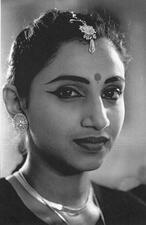
Baghdadi Jewish Women in India
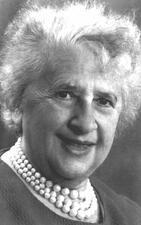
Sarah Bavly
Dutch-born Sarah Bavly was a pioneer nutritionist in the Yishuv who laid the groundwork for Israel's nutritional infrastructure and educational programming, directing Hadassah's hospital nutrition departments and school lunch programs and establishing the State's first College of Nutrition.
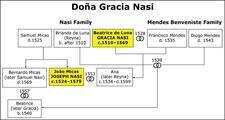
Conversas
After the establishment of the Inquisition in 1478, observance of crypto-Judaism became dangerous and more difficult. Women were at the center of Judaizing efforts, since the home was the only remaining institution in which one could observe Jewish law. Crypto-Jewish women most frequently observed the Sabbath and dietary laws.
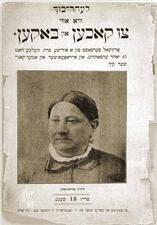
Cookbooks in the United States
American Jewish cookbooks capture the range of Jewish religious and cultural expression in the United States. Women took advantage of the versatility and variety of cookbooks to add their voices to the growing and developing Jewish culture in the United States.

Chloe Coscarelli
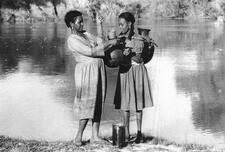
Ethiopian Jewish Women
Family During the Holocaust
Although Jewish family life was destroyed and restructured in many ways during the Holocaust, it still often provided strength and a sense of normalcy. In many cases women became the family’s main income earner and were charged with many new tasks and responsibilities. Families were also frequently broken up by deportation, escape abroad, and death.

Food in the United States
Food and foodways are a critically important area of documenting and deciphering the evolving experience of American Jewish women from the earliest days of immigration to the present. Food is a lens into American Jewish women’s worlds of family, religion, identity, work, political action, entrepreneurship, and more as they have encountered the forces of assimilation, anti-Semitism, systemic racism, sexism, changing consumer economies, and the long women’s movement.
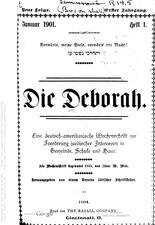
German Immigrant Period in the United States
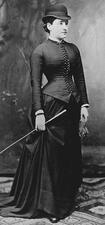
Juedischer Frauenbund (The League of Jewish Women)
Founded in 1904, The League of Jewish Women pursued secular German feminist goals while maintaining a strong sense of Jewish identity. The League supported vulnerable women through practical social reforms while fighting for political power within the German Jewish community. It saw employment opportunities as essential to women’s economic, psychological, and emotional independence.
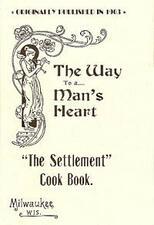
Lizzie Black Kander
Lizzie Black Kander was a Jewish philanthropist who turned the recipe book she made for a cooking class for new immigrants into a two-million-copy bestseller. Her decades of service in the early twentieth century had an unforgettable impact on the Milwaukee Jewish community.
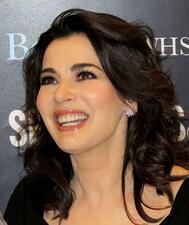
Nigella Lawson
Regina Margareten
Regina Margareten was hailed as the “Matzah Queen” and the “matriarch of the kosher food industry” for both her business sense and her innovations to improve the quality of her products.
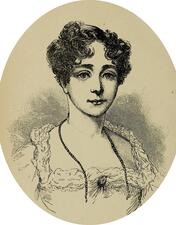
Judith Montefiore
Often referred to as the “First Lady of Anglo Jewry,” Judith Montefiore embodied all the Victorian virtues of high moral purpose, sense of duty, charity, and public-mindedness and was also a fierce loyalist to her faith and her people, devoted to Jewish causes and the welfare of Jews the world over.
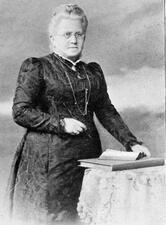
Lina Morgenstern
In the face of formidable anti-Semitic opposition, Lina Morgenstern was a highly successful feminist author, educator, and peace activist who was supported by many, including the Prussian Empress Augusta. In 1896 she organized the first International Congress of Women in Germany, which was attended by feminist leaders from all over the world.
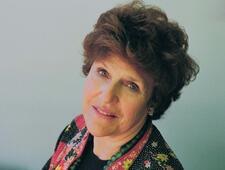
Joan Nathan
Award-winning journalist and cookbook author Joan Nathan is a transformative figure in documenting and exploring the evolving Jewish experience both in America and around the globe through the powerful lens of food. A long-standing contributing writer to The New York Times and Tablet Magazine, Nathan is the author of eleven books, as well as hundreds of articles, podcasts, interviews, and public presentations about Jewish, global, and American foodways.

Niki Russ Federman
Niki Russ Federman is the fourth-generation co-owner of Russ & Daughters, the iconic appetizing shop founded in 1914 on the Lower East Side of Manhattan by her great-grandfather, Joel Russ. Known globally for its bagels, lox, babkas, and other Ashkenazi Jewish food delicacies, Russ & Daughters is believed to be the first business in America to include daughters in the name. As the fourth generation to own Russ & Daughters, Russ Federman has overseen its expansion while retaining an authentic legacy of Jewish food.
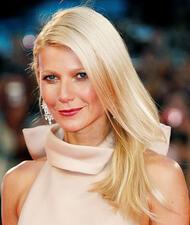
Gwyneth Paltrow
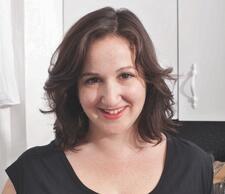
Deb Perelman
Claudia Roden
Food writer and cookbook author Claudia Roden single-handedly opened up the world of Sephardic and Mizrahi Jewish foods to chefs, food critics and home cooks across the globe providing a new portal into understanding and experiencing Jewish food and culture.

Sephardic Food
Sephardic food tells the story of the Iberian Jewish community from its roots in ancient Spain and Portugal through the community’s expulsion in 1492 and subsequent global diaspora. Sephardic women acted as the main interpreters and preservers of the community’s culinary repertoire.
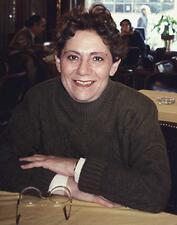
Alicia Steimberg
Fiction writer Alicia Steimberg (Buenos Aires, Argentina, 1933-2012) garnered important literary prizes. Her work as a translator was awarded by the Konex Foundation and she served the government as Director of Books of the Secretariat of Culture.


